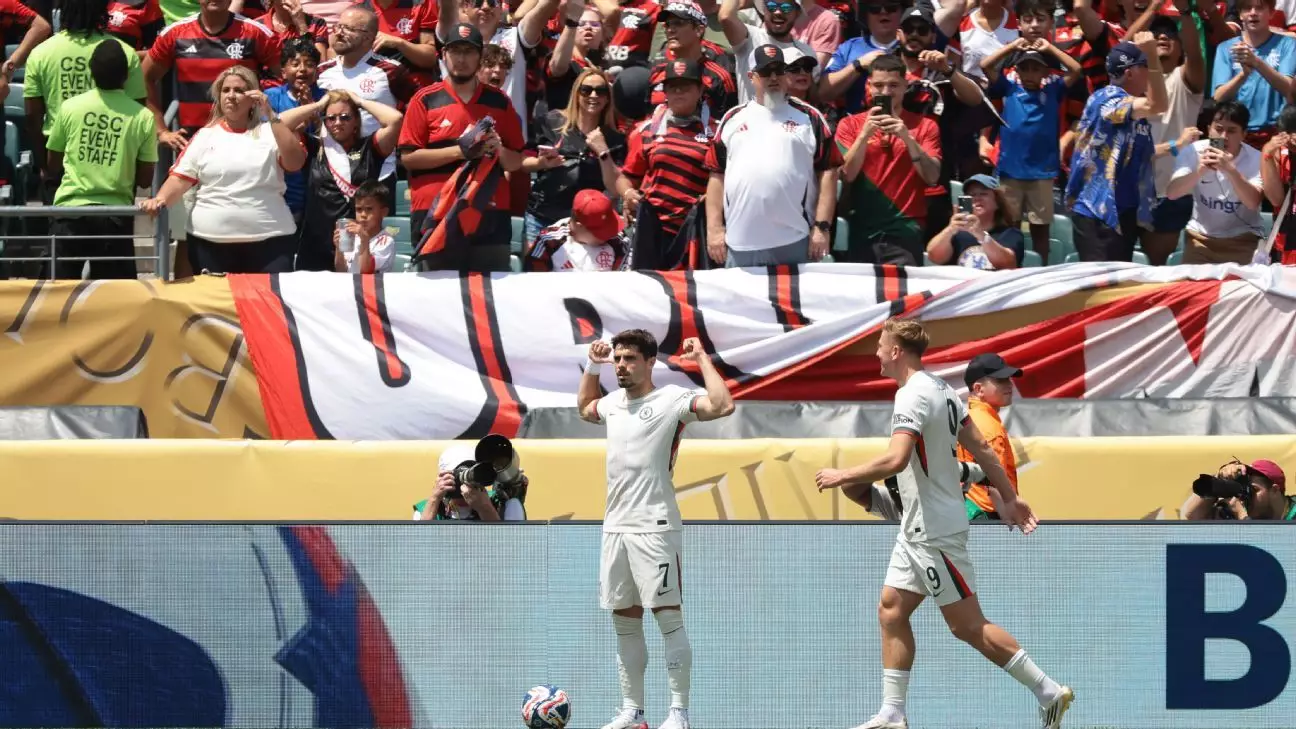In a riveting display at the Club World Cup, Flamengo emerged victorious over Chelsea, showcasing not only their superior skill but an undeniable passion that highlighted a cultural divide in football. Pedro Neto’s insights after the match illuminate a crucial aspect often overlooked in global competitions: the innate desire to succeed. While Chelsea has long been a prominent figure in European football, the fiery spirit of South American teams, exemplified by Flamengo, showed that heart can often outweigh tactical superiority.
Neto’s Moment of Reflection
Following the match, Neto candidly shared his thoughts on the performance and the emotional hurdles faced on the pitch. “What went wrong was the second half,” he reflected, pointing to Flamengo’s resurgence as the match progressed. His acknowledgment that Flamengo’s players showcased more desire underscored a sense of urgency and resilience that sometimes eludes European clubs accustomed to their lucrative leagues. The Brazilian squad played with fervor, pushing through challenges that often manifest in international play and exemplifying a mentality that aims to seize the moment rather than dread the consequences of defeat.
Red Cards and Shifting Momentum
The crucial turning point came with the red card shown to Chelsea’s Nicolas Jackson, which effectively shifted the momentum squarely in Flamengo’s favor. The nature of the game changed dramatically when Chelsea lost a vital player, exposing their vulnerabilities in a match already fraught with pressure. Marcelo Cucurella noted a distinctive energy around South American teams—a momentum that European squads might struggle to match under unfamiliar circumstances. This dynamic lends credence to the notion that context is a vital component of performance, regardless of the individual talents on display.
From the Beach to the Battlefield
Despite the sting of defeat, Neto asserted that he would prefer this competitive arena over a leisurely escape. His words reflect a profound respect for the footballing experience; this attitude is essential in understanding the allure of tournaments like the Club World Cup. Players like Neto are not merely participating; they are living out a dream that many aspire to. The zeal with which he embraces the challenge demonstrates a rarity in many professionals today—a gratitude for the grind and a belief that every moment on the pitch is not just a job, but a privilege.
A Call for Understanding and Adaptation
Cucurella’s remarks about the stark differences between the playstyles of European and South American teams resonate deeply with football enthusiasts. He articulates a reality often glossed over: European teams are entrenched in a specific style of play that doesn’t always translate well when faced with the raw talent and diverse tactics of their South American counterparts. This acknowledgment opens the door for dialogue about adaptability in football—an essential quality that can dictate success on the world stage.
The lessons from this match go beyond mere statistics; they illuminate the essence of football as a passion-driven pursuit. In a sport where heart can often tip the scales, Flamengo’s victory stands as a testament to the power of desire, spirit, and cultural pride, challenging teams worldwide to examine not just their strategies, but the very heart behind their game.

